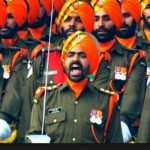DHEERAN CHINNAMALAI
The Last Man Standing of the Poligar Wars
The dawn of the 19th Century witnessed myriad rebellions across Southern India against the British in the aftermath of their defeating and killing Tipu Sultan to emerge the dominant political power in India. The most prominent among those were the Poligar Wars. ‘Poligar’ is a corrupted form of the word ‘Palayakkaran’ in Tamil, which means the one who maintains an armed camp; the word ‘palayam’ meaning armed camp. Poligars were chieftains who administered different regions of the Tamil country, more or less autonomously in the fragmented state of Southern India since the defeat of the Vijayanagar Empire in late 16th Century at the hands of an alliance of Deccan Sultanates and the empire’s disintegration thereafter. The Poligar system prevailed unhindered for almost two centuries until mid-18th Century, when the English East Company, which was merely a trading outfit along the Coromandel Coast for over a century began making inroads into the political arena of Peninsular India, aided by an unholy alliance they had entered into with the Nawab of Arcot, a vassal of the Mughal Emperor and a pliant and incompetent figurehead of a viceroy for the region. This brought the English Company’s forces into confrontation with the free-spirited Poligars, who owed no allegiance to the Nawab, resulting in sporadic fighting in different parts of the Tamil homeland all through the latter half of the 18th Century and early 19th.
Commencing with Puli Tevar based at Tirunelveli, the earliest flag bearer of the Poligar cause against the foreigners, and ending with Veerapandia Kattabomman based at Panjalmkurichi, more than thirty Poligars of the Southern districts of the present-day Tamil Nadu engaged the British in bloody battles during that half-century, often gaining the upper hand. Nevertheless, they could not match the technological and numerical superiority of the British and almost all of them ended up being killed in action or executed. In fact, although branded rebellions, these confrontations, wherein the gallant Poligars, armed solely with crude weapons and raw courage, pitted themselves against the superior firepower of the enemy, turned out to be such pitched battles that the British had had to pay dearly to win each.
While the curtain came down on the Poligar Wars of the 18th Century with the hanging of Kattabomman at Kayatharu in October 1799, in no way it marked the end of the Poligar challenge to the British. The conflicts readily spilled over into the 19th Century. While the fight was taken up with renewed vigour by diehard Poligar fighters that included Kattabomman’s brother, Oomadurai, and Maruthu Pandyar brothers from the southern provinces of the Tamil country, there arose a firebrand fighter from Kongu Nadu to the west.
Born in April 1756 at Melapalayam near Erode, Theerthagiri, who later earned fame as Chinnamalai, began his tryst with warfare when young by enlisting in the army of the ruler of Kongu Nadu, comprising territories of present-day Coimbatore-Erode-Salem belt of western Tamil Nadu. His leadership traits came to the fore, when resenting the belligerence of the British, he raised an army of 1000 men and joined Tipu Sultan to fight them; in the bargain, getting himself and his army trained in modern warfare under French instructors. Later his army proved a boon for Tipu in his victories against British in the battles of Chitheswaram and Mazahavalli. He fought alongside Tipu in his last stand at Seringapattam, but had to move to a place called Odanilai following the loss of Seringapattam and slaying of Tipu. Raising a fort at Odanilai, he continued defying the British, joining hands with Maruthu Pandyar brothers in what came to be known as the Second Poligar War that raged during 1800 and 1801. He led a confederacy of western Polygars to attack the British at Coimbatore in 1800. Later he almost singlehandedly meted out one humiliating defeat after another to the British at Cauveri in 1801, Odanilai in 1802 and Arachalur in 1804. By then, most of his fellow Poligars having been executed and he himself constantly under attack by the overwhelmingly superior forces of the East India Company, he was forced to abandon the fort and resort to guerilla warfare, relocating himself at a place called Karumalai in Palani.
Chinnamalai continued to be a thorn in the flesh for the British, who, having failed to defeat him in a fair fight, now fell back on their inherent practice of chicanery. And as was the case with almost every other Indian brave-heart who resisted the British onslaught, he too fell prey to the betrayal from one of his own, when the British succeeded in bribing his cook, Nallapan, to reveal his master’s hideout. Cornered and captured by the Company troops, Chinnamalai was hanged along with his two brothers at a 15th Century fort built by the Vijayanagar Empire at Sankagiri between Salem and Erode on 31 July 1805. It would be years before the British would eventually succeed in putting down the Poligar challenge once and for all, with a master stroke in deception when they would invite about two dozen surviving Poligars to Madras for a parley and imprison the entire unsuspecting group in a coup and have them deported to Andaman Islands, never to set foot on their homeland again and consigned to oblivion. However, Dheeran Chinnamalai remains the last of the great Poligar fighters to have withstood the British onslaught when their resistance to colonialism was at its zenith.
The Government of Tamil Nadu has erected a memorial for this great patriot at Sankagiri. Earlier they had built a ‘Manimandapam’ in his memory at Odanilai where he had built a fort and defied the British for almost five years, and also named the Erode collectorate building as Dheeran Chinnamalai Maligai. The government and the people of Tamil Nadu commemorate the valiant anti-colonial struggle of this great son of their land with great pride and elan every year on 31 July.





